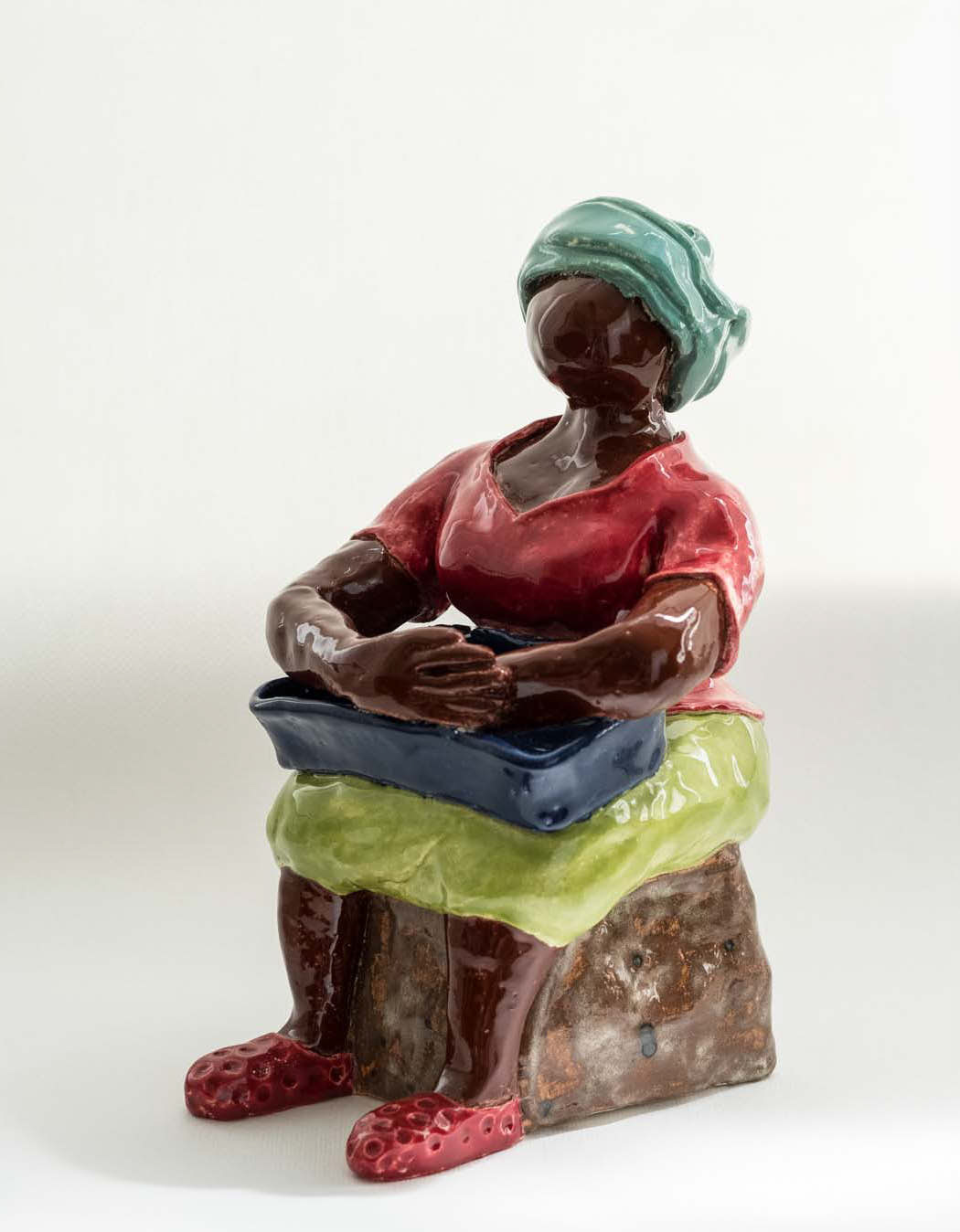
The snack lady sat on the pavement, at the side of the road, or by the school gate, a large tray on her lap or on a box in front of her. Sometimes it was a more elaborate glass-sided box. This was meant to keep out the flies, but generally served to keep a few trapped and buzzing around in mad delight as they flitted from one delicacy to the next. The location, time of day and day of the week determined to a large extent what was offered. Piles of fruit sold well at the side of the road, but schoolchildren preferred tamarind balls, boiled channa, spicy and crisp fried channa, phulourie with mango sour, egg balls and pastries. Friday afternoon called for souse and black pudding, to attract the adults who were heading home with their pay packets. The ladies had their regulars and business was brisk if the quality was good.
I had a bit of a deprived childhood as far as wayside snacks went. The school canteen and tuck shop were approved sources for loose treats, but buying from a pavement vendor, however well recommended or established, was strictly forbidden. The only reason I was ever given was that it was not hygienic to buy food like that. I later interpreted this to be the result of my parents’ lasting trauma after my baby brother was taken away from us by gastroenteritis. There were other more practical reasons too. The wonderful black pudding that my friends talked about, for instance, was made from the blood of pigs or cows, forbidden substances in our Hindu household. It seemed that I was destined to live my life without ever tasting this delicacy. But life has funny twists and turns and salvation came suddenly, in large and cheerful human form.
She cooked for us for more than 6 years and could turn her hand to any type of food with equal success. On weekdays I left for school long before she came in to work and by the time I got home at around 2.30 p.m. she had usually left, but there was a covered blue glass dish in the oven, with my lunch. She knew all my favourites and which parts of what I liked best. And she especially knew that I loved gravy, so the curry or the stewed chicken with pigeon peas were always accompanied by enough gravy to make my rice swim. Quite soon after she started to cook for us, we discovered that she was a dab hand at making black pudding. Much good that did, was my gloomy reflection. It was still pork and beef. But then came the stroke of genius: the next time a sheep was butchered for us, she used the blood to make black pudding. What a revelation that black pudding was! Enough rice to give it body and hot peppers and herbs for flavouring. Sliced thickly and slathered with freshly-made mango sour, it was like nothing I had eaten before. This thing was even better than my friends had described it. Every time she made it, I ate until I almost burst.
Over the years, I was given small glimpses into her life. She came to us on weekdays until mid-afternoon and went home early on Saturdays. Sundays were her day off. She walked the few kilometres to and from her village where she had a brood of children to care for. She didn’t have a husband, but there seemed to be a few ‘child fathers’ somewhere in the background. What their function was, apart from the obvious, I never knew. They did not appear to be financially provident or especially helpful in any case. She supplemented her pay with her food stall at the side of the road near where she lived, selling black pudding among other things. Unsurprisingly, she did good business, as she was an excellent cook. But it cannot have been easy to make ends meet and there can never have been enough hours in her day. You would never have guessed it, from looking at her bright and cheerful smile.

 Visit my Facebook page
Visit my Facebook page
Really enjoyed reading this, Gaitri. Similar memories come flooding back. Looking forward to reading more of these lovely stories.
Thank you, Carolyn! More to come very soon.